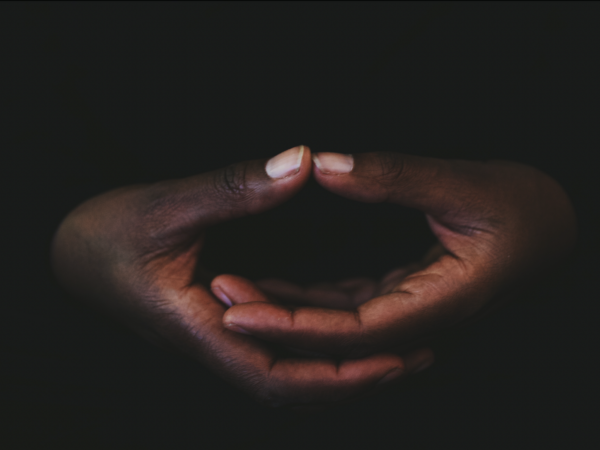by Courtney Walker
Attention is our greatest resource; it’s one of our most valuable resources. There’s literal monetary value in our attention. A whole economy has been built around capturing our focus. Billions of dollars every year are made by taking as much control of our attention as companies possibly can.
What about money being our greatest resource? Or even love? We can’t make money without attention. We can’t give or receive love without attention either. It’s the foundation of our ability to operate in this world as human beings, to be able to operate together with other human beings. Yet as a culture we don’t collectively own our attention, which means we don’t cultivate it, don’t protect it, and don’t treat it as the precious resource it is, the superpower it can become, and how it makes everything else possible.
Anyone who was ever great at anything did so because they knew how to use their attention well. We all want to be great. We want to be great at being exactly who we are: great as parents, great in our relationships, great at whatever we love — reading, drawing, rhyming, playing, learning math, science, languages, cooking, caring for others, or even doing dirt (to some extent). The drive to be great at what we do is a fundamentally human one, no matter what we’re doing. But we have to train our minds and our attention to be great or to even be good.
Mindfulness is exactly this, yet it can definitely sound like some dominant culture nonsense. “Mindfulness” often has a high, mighty, almost too puritanical to be fun or interesting vibe to it as it’s presented today. Yet, mindfulness is not nonsense or out of our reach. At least it doesn’t have to be. From J. Cole to Kendrick to Kobe, LeBron and Jordan to Oprah, Tina Turner to Big KRIT, Big Sean, Beyonce, and Jay, elite performers train their attention to get their minds right and handle business. Couldn’t we all use some of that? But we want to use a different term. We will refer to it as simply training our attention.
Since cavemen used rocks to draw on cave walls, the truth that the quality of our lives is decided by how much control we have over our attention has been understood, at least on some level. Attention can be defined as “a state in which cognitive resources are focused on certain aspects of the environment rather than on others.”
Advertisers like corporations and people with products to sell know this well. They sell to us that the quality of our lives will change and be better by buying their products, and it is their job to use that knowledge to hijack our attention. This is what is known as the attention economy.
It’s well past time we buy our attention back and take as much of it as we can out of the wider attention economy with a power and desire to aim it elsewhere. Think of everything we would give up, everything we would remove our attention from, buying our focus back from the reactive slavery of the attention economy, and putting it into an economy we design, a new black economy that benefits everyone, not just us.
Attention
“True attention is a state so difficult for any human creature, so violent, that any emotional disturbance can derail it. Therefore, one must always endeavor strenuously to protect one’s inner faculty of judgment against the turmoil of personal hopes and fears.” –Simone Weil
Power and value don’t come from other people knowing what we have. Power and value don’t come from powerlessness, victimhood, or outrage, and pulling for pity brings neither power nor value. We allow our attention to be manipulated and baited into anger, thus we destroy ourselves literally, physically, mentally, and emotionally. Our misused attention is like an oil spill which ruins everything that it touches, and it slowly smothers, covers, kills. Once our focus ignites, it’s nearly impossible to contain. This focus comes from us knowing that looking for value and power outside of ourselves is how we waste our greatest asset, our attention.
Power and attention go hand in hand. The delusion makes it hard to recognize where we are actually spending our resources. We create what we want to see in this world: we can feed the things we believe in and withdraw from what we don’t, or we give attention and power to things that aren’t quite right in our lives.
Our freedom comes from consciously putting our attention on what we want to, not on where it’s drawn to or hijacked. We put our focus where we want. The economy, the media, the ex, whoever — they don’t get to draw our attention if we don’t want it to go there.
Resource:
a: a source of supply or support: an available means — usually used in plural
b: a natural source of wealth or revenue — often used in plural
c: a natural feature or phenomenon that enhances the quality of human life
(Merriam-Webster)
Attention is a resource. In fact, it may be our greatest resource. We can’t get money without attention, and we can’t give or receive love without it either. Attention is the foundation of our ability to operate.

 Get access to the monthly Rehumanization Magazine featuring contributors from the front lines of this effort—those living on Death Row, residents of the largest women’s prison in the world, renowned ecologists, the food insecure, and veteran correctional officers alike.
Get access to the monthly Rehumanization Magazine featuring contributors from the front lines of this effort—those living on Death Row, residents of the largest women’s prison in the world, renowned ecologists, the food insecure, and veteran correctional officers alike.